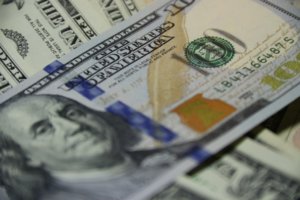Retail Forex transactions once again at the heart of FX benchmark rate fixing case
The plaintiffs argue that the plain meaning of “purchase” or “ payment” does not limit the means or methods of the purchase or payment, whether it be cash, check, credit card, debit card, ATM, or wire.

A Forex benchmark rate fixing case targeting top banks like JPMorgan Chase & Co. (NYSE:JPM), JPMorgan Chase Bank, N.A., Barclays Capital, Inc., Citibank, N.A., Citigroup Inc (NYSE:C), Bank of America Corp (NYSE:BAC), Bank of America, N.A, HSBC Bank USA, N.A., and HSBC North America Holdings, Inc., is once again focusing on the definition of “foreign currency retail transactions”. After Judge Lorna G. Schofield of the New York Southern District Court sided with the defendant banks about the definition in June this year, the plaintiffs have now officially filed a motion for reconsideration of that order.
In brief, the plaintiffs want the term to include debit, credit and ATM foreign currency transactions. The banks argue that this definition is too broad.
In their latest Motion, filed with the New York Southern District Court on Friday, July 20th, the plaintiffs, including Go Everywhere, Inc., Valarie Jolly, Mad Travel, Inc., Lisa McCarthy, John Nypl, and William Rubinsohn, ask the Court to accept their definition.
The plaintiffs’ complaint mentions “all consumers and businesses in the United States who directly purchased foreign currency from Defendants and their co-conspirators for their own end use since January 1, 2007 [to December 31, 2013]”. The allegation of “purchased”, the plaintiffs say, is not qualified by any reference to the purchase of physical currency in any of their complaints, nor in this Court’s Orders nor in the Plea Agreements. The Complaint does not limit the means used by the plaintiffs when they purchased and paid for the Defendants’ unlawfully inflated overcharges.
“The plain meaning of “ purchase” or “ payment” does not limit the means or methods of the purchase or payment, whether it be cash, check, credit card, debit card, ATM, or wire”, the plaintiffs argue.
In addition, the plaintiffs quote the “Federal Reserve Payments Study 2016”. In this report, the Fed, which governs the banks in question, stated: “Payments included in the study were initiated from accounts domiciled in the United States and typically involved the use of debit cards, credit cards, electronic credit and debit transfers using the automated clearinghouse (ACH) system or checks” including “automated teller machines (ATM) cash withdrawals.” The Fed’s inclusion of credit, debit and ATM in “payments” is, according to the plaintiffs, its recognition of the migration of payments from cash and check to predominant credit, debit and ATM payments since 2007, the beginning of the class period.
Importantly, on the credit, debit and ATM cards issued by the defendant banks, Visa and MasterCard accept the spot benchmark exchange rates that the banks allegedly manipulated and do not make independent determinations. By including the FX benchmark exchange rates that the banks allegedly manipulated as the primary component in foreign currency conversions on the credit, debit and ATM cards issued by Defendant banks, Visa and MasterCard do not make an independent determination of the exchange rates. They accept the benchmark exchange rates that Defendants manipulated and add on a small handling fee, the plaintiffs say.
Furthermore, the Complaint claims “that the manipulated FX benchmark rates were the primary component of the prices Plaintiffs paid for foreign currency in the consumer retail market.” The same is said to be true for purchases of foreign currency on credit, debit and ATM cards – the FX benchmark exchange rates allegedly manipulated by the banks are the primary component of the exchange rates paid by the plaintiffs for foreign currency on credit, debit and ATM cards issued by defendant banks.
Finally, the plaintiffs’ expert Carl Saba performed an analysis and concluded that there is a strong correlation between the benchmark ECB Fix Rates that were purportedly manipulated by the defendants and the base exchange rates quoted by Visa and MasterCard to end users.
The case, captioned Nypl v. JP Morgan Chase & Co. et al (1:15-cv-09300), continues at the New York Southern District Court.









